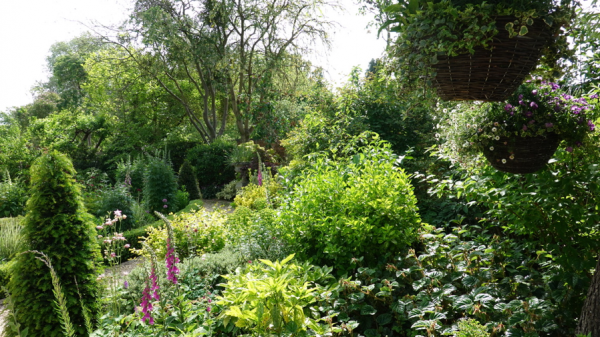
10.37
Up c. 24.35, addressing a point of concern.
Rising 06.30. On the street for Sunday papers, down the garden for a brief morning exercise and watering…



… and to morning reading…

Another – hooray! – that academic research and commentary, over the past decade and two, increasingly address my interests as a working player, one who researches on their feet (and a guitar stool) the nature of musical and creative activity. And also the impact of numerical assessments on qualitative endeavor.
Available online from my respected Reading Advisor, Dr. Alfonso Montuori…
https://www.academia.edu/33705069/The_evolution_of_creativity_and_the_creativity_of_evolution
https://www.academia.edu/40541753/THE_CHANGING_FACE_OF_CREATIVITY
https://www.academia.edu/38307951/Advancing_Creativity_Theory_and_Research-_A_Socio-cultural_Manifesto.pdf.
If ever I were to formally undertake a PhD, Dr. Alfonso is the supervisor I would head towards. There are rumours that once Dr. Montuori has completed his autobiography - The Afterlife Of A Remiped – he is working on a book, pulling together years of research and study of the creative process, academically-sound and authoritative, aimed at engaged-but-non-academics such as myself.
I’m not sure to what extent innocent audients assume that their favourite musicians and artists continue to develop throughout their performing life: personally, musically, creatively. My experience: not all. Some stop, and for various reasons.
Perhaps, in mid-life after achieving a degree of professional success, they set themself the aim of “being happy” or “comfortable”. While a legitimate choice, after the battering professional musicianship hands out, if happiness is the aim, the creative life moves a step away. Happiness may be an outcome of creative work, but can never be the aim; and satisfaction a more likely outcome from good work than happiness IMO.
Comfort is death for the artist.
Perhaps the aim is personal popularity and acclaim, commercial success and/or income generation – the One Big Cheque. Interestingly, from my morning reading, I came across a finding of Teresa M. Amabile https://www.hbs.edu/faculty/Pages/profile.aspx?facId=6409: financial incentives can be counter-productive to creative action.
This is not news to me.
Musical activity, essentially a social undertaking in a wider sense (music, musicians, audients, performing contexts and circumstances – e.g. sound engineers, tour managers, technicians, promoters, agents); within the context of a performing ensemble – e.g. string quartet, gamelan, choir, marching band, symphony orchestra, jazz/rock group – the group work is (at least potentially) a creative activity that is collaborative. So, where any particular member sees themself as the centre of attention, star of the show, directing force, indispensable to the event – look out! Increasingly, and especially in a longer-term project, the creative life of the outfit begins to wither; becomes more professional, less creative; more functional, increasingly fixed.
The Fall From Musical Grace…
Spontaneous composition
Improvisation
Extemporization
Hot licks
Noisefest…
April 1961: my first beat group – The Ravens. I have sixty-three years of learning how good/great players manage to get in their own way, and the way of others, in group work that aspires to creativity. Now, with sufficient distance in time to notice the consequences and repercussions on the lives of players, of their decisions and choices made years ago. Some of these choices were “consciously” made, some a series of inevitable outcomes from Blind Spot (where we are unknowing of our most fundamental, directing imperative).
So, a practical question: How do we get to know our out-of-sight Primary Drivers?
Practical Answer Number One: We begin by Doing Nothing.
In time, we begin to know the distance between who-we-are and what-we-are, and find a place to operate within that space.
Practical Answer Number Two: we ask someone who can see us.
Reflecting, on what Toyah calls First Voice, and Dr. Andrew Keeling’s own informed comments to me on the Unconscious https://www.dgmlive.com/diaries/Robert%20Fripp/rf-diary-may18-2020, my own differentiation between Fripp and Robert: a key difficulty in “planning” creative situations is that, if the situation is creative, it is impossible to know what we are doing. Not only are there no guarantees in creative activity: there must be no guarantees.
A good professional knows what they are doing.
So, a good professional does what they are knowing.
I’m interested in players that play what they don’t know. In the creative leap, something happens that escapes our control and direction. Our recognition of this takes place after the leap: perhaps shortly afterwards, perhaps a long time afterwards. But not before.
We cannot predict a creative moment. If we could, the moment would/could not be creative. But it is possible to establish conditions, even a way of doing things, where a creative act is more likely to take place: the conditions are supportive of creative activity.
Yes, I have experienced creative insights while on my own. But to set them in motion… that requires a Team.
19.08 Toyah & Robert’s Sunday Lunch – The Showdown switched on at noon…


https://www.facebook.com/10019268676/videos/262253224893872/
Lunch by the back door.
Computing. Down to the Cellar, practicing. Watering. Back to writing and evening watering…

A very hard day, overcoming an arising obstacle, and also an excellent day in addressing that obstacle.